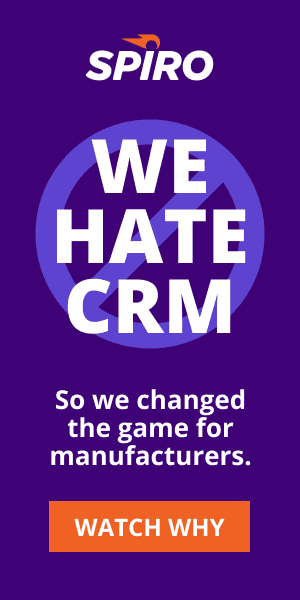8 Things That Are Slowing Down Your Sales (and How to Speed Them Up)
A sales career is a marathon. It can span decades and take you from an entry level BDR position to a VP of Sales or higher. But that marathon is broken down into years of hard work, which are broken down into months, weeks, and days of effort. It’s how you spend those days that makes all of the difference. And if you’re doing things that are slowing you down, your goals will be that much farther from reach.
There lots of common mistakes that salespeople make, that if addressed, can make all of the difference between succeeding and merely getting by. Here are eight things that are slowing down your sales, and what you can do about them.
1. Talking instead of listening
If you read this, or any other, sales blog then you probably already know that the best salespeople understand that listening is one of the most important things a salesperson can do with a prospect. But many salespeople still haven’t internalized this lesson and spend more time talking at potential customers than listening. Listen more and stop shooting yourself in the foot.
2. Not controlling the sales process
The flip side of that coin is allowing the prospect to control the sales process instead of you. Everyone is going to tell you that they want to think about it or that they will be happy to talk to you again in a few weeks, but if you’re not in control, you’ll never get to the next level. You are able to impact the world around you by taking initiative and being actionable. It might make you feel uncomfortable at first, but you need to understand your process and push your prospects a little bit when necessary.
3. Overthinking things
Thinking is great, but doing is much more effective. Don’t sit around analyzing what you need to do for hours, coming up with every possible eventuality and then daydreaming about which Audi you’re going to buy when your big deal closes. Instead, do things. Prospect, follow up, teach yourself something about a product. Anything is better than sitting around thinking about what could go wrong or what could go wrong.
4. Fishing in the wrong pond
Where you’re prospecting is just as, if not even more important than what you’re saying. Your product or service isn’t a great fit for everyone and you need to understand which market(s) it’s ideal for. Rolls-Royce doesn’t market to middle-class families because their product isn’t a fit. Similarly, as a salesperson you need to identify what an ideal prospect looks (and doesn’t look) like and stop wasting time going after people when your product doesn’t make any sense for them.
5. Not killing bad opportunities quickly
Similar to the above, you need to kill bad prospects quickly (proverbially of course). Sure, if there’s a hint of promise to the deal, maybe you can add it to a follow-up list that you hit after you’ve done everything else for the day or the week. But if a deal is a complete and total long shot, you shouldn’t be spending more than a sliver of your time pursuing it, and should instead be looking for other, more promising deals.
6. Procrastinating
It’s hard not to procrastinate in this day and age, it really is. There are wildly successful billion dollar companies whose sole purpose is to enable you to procrastinate. Facebook, twitter, Netflix, Snapchat, the news, cable television. They’re all designed to suck you in and not get anything else done. But you have to actively make sure that you’re able to tune these distractions out for long periods of time if you really care about becoming and excellent salesperson. If you can’t, you won’t, it’s as simple as that.
7. Not using new technology
You might like your pen and paper approach and maybe it’s worked for you, but there are new tools available for salespeople that really can help you succeed. Spiro is a Proactive Relationship Management Platform that can help you close more deals, because you’ll spend less time doing everything else that gets in the way. But we’re also far from the only tool available for salespeople and shrewd, forward-thinking sales professionals are willing to devote the time to learn something new if it means they can become more successful quicker.
8. Not asking for the business
It’s a tale as old as sales itself. The salesperson builds great rapport, does a great presentation, follows up and then leaves things hanging by not explicitly asking for the prospect’s business. If you’re not going to come right out with it, then you’ve probably wasted a lot of your time. Sure, it might feel a bit weird the first time you do it, but it’s the best way to get a decision or a concrete answer from a prospect, otherwise you’ll keep exchanging pleasantries and emails back and forth until maybe, possibly, they decide to move forward.

